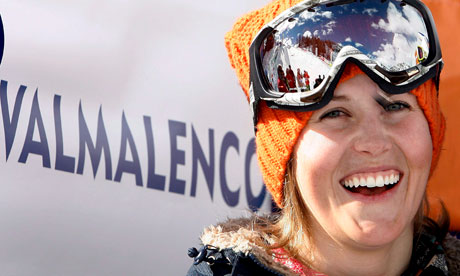News
How US private insurance healthcare is failing

Commentary by: RoseAnn DeMoro
Executive Director of the National Nurses United
Sky-high premiums, denied treatments, families bankrupted by medical bills…which bit of US healthcare would you like?
Chances are you've probably never heard of Amelia Rivera, a three year-old from New Jersey. Chances are better you have heard of 29-year-old Canadian, Sarah Burke, one of the best freestyle skiers in the world.
Burke and Rivera don't have a lot in common, but tragically, their families do. Both have been borne the scars of a callous and broken US healthcare system – which, apparently, brings a gleam to the eyes of those seeking to promote privatization in their overhaul of the NHS in the UK
For those who missed the story, Burke, the six-time X Games gold medalist, was training in Park City Utah, 20 January, when she crashed and suffered major brain trauma. Flown to a prestigious hospital in Salt Lake City, Burke spent nine days in neuro-critical care before, sadly, she died.
As if the grief of her death was not enough, Burke's husband had to start a website to ask for donations to help pay the massive medical bill, estimates ranging as high as $550,000.
In a column in the Calgary Herald aptly titled "Sorry for your loss, here's your bill", columnist Robert Remington noted the dismay of Canadians at the healthcare mess to their south, where patients routinely receive hospitals bills "big enough to choke a horse". Insurance companies may negotiate it down, but for individuals without insurance, or have poor coverage, the outcome can be devastating. Nearly two-thirds of personal bankruptcies in the US are directly caused by medical bills.
Healthcare costs for US families have more than doubled in the past nine years. In 2010, health insurance premiums gobbled up 20% or more of median income for 62% of US residents under age 65, the age when the federally funded, guaranteed coverage of Medicare kicks in.
Skyrocketing costs are just a part of the problem. The private insurers are another.
Amelia Rivera, meanwhile, has reportedly been denied a kidney transplant by a Philadelphia hospital because of mental disabilities she was born with from a rare genetic defect, say her parents, who add they were specifically told that by a doctor. The hospital said that it did not disqualify potential transplant candidates on the basis of intellectual abilities.
Routine denial of needed medical treatment is a curse that pervades the profit-focused private insurance system in the US. In California, the only state that makes such data public, the seven largest private insurers rejected 26% of claims in 2010. Typically, the rejections came from payment disputes between the insurers and providers, such as doctors and hospitals, but often that resulted in patients and families getting stuck with massive bills in a system that does little to control costs. And outright care denials are all too common from insurers, which have developed a laundry list of lingo to justify denial of care, such as transplants, even when recommended by the patient's physician.
While the US spends far more on healthcare than any other nation, it continues to slide in barometers of quality and access to care. A Commonwealth Fund study in November found that sick adult patients in the US are far more likely than their counterparts in ten other high income nations, including the UK, to skip needed medical care, such as visiting a doctor or filling a prescription, and struggle with medical debt.
A study published last June from the University of Washington in collaboration with researchers at Imperial College London found life expectancy rates in 80% of US counties were far behind the standard set in the top ten nations. And a Unicef study in December 2010 showed the US ranked a paltry 22nd in health inequality for children, behind even economically struggling Greece.
If the prestigious medical journal Lancet is right, the health bill before Parliament in the UK would "pave the way for the introduction of a US-style health system". We in the US can tell you, we've seen the future and it doesn't work – not for the families of Sarah Burke and Amelia Rivera, and not for tens of millions of others.